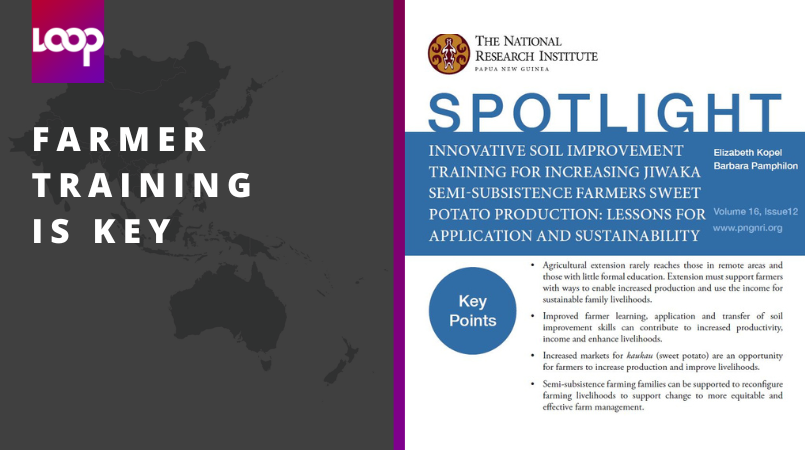
Papua New Guinea (PNG) smallholder farmers are the backbone of food production, feeding the nation by growing most of the food using farming practices developed over many generations.
However, the farmers face many challenges and they are increasingly turning to agricultural extension and development agencies to support and guide them in adapting their agriculture to improve the soil and increase productivity.
The National Research Institute (NRI) Spotlight Volume 16, Issue 12 is titled Innovative soil improvement training for increasing semi-subsistence farmers sweet potato production: lessons for application and sustainability.
The article publication is written by Dr Elizabeth Kopel, PNG NRI and Professor Barbara Pamphilon, University of Canberra outlines key factors that contributed to improve farmer learning, application and transfer of soil improvement skills which can contribute to increased productivity, incomes and enhance livelihoods.
The article ends with lessons of farmer learning for agricultural extension strategies aimed at soil improvement and knowledge transfer at the village level. One key lesson that stands out in this initiative is that participatory farmer learning is sustainable as it enables people with little formal education to immediately apply new learning to their farming and build this learning into their existing knowledge and farming systems.
Partnerships between agricultural agencies and community-based organisations can provide initial low-cost training to farming families who can share this further through farmer-to-farmer peer learning making this cost-effective and sustainable in the longer term. Several challenges that limit farmer take-up and application of soil improvement methods and in turn reduce cultivation and yield of sweet potatoes are also highlighted.
